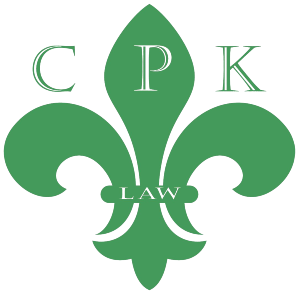By Hayley N. Price, Esq.
If you are someone who was around between 1994 and 2022, you may remember the popular sitcom Friends, which included a good-natured but somewhat unsophisticated character named Joey who famously said. “It’s like a cow’s opinion, it doesn’t matter. It’s Moo”.
Although something being “Moo” is clearly not correct legalese, it is actually more common than most people realize to misuse, mispronounce, or misunderstand legal words and concepts. Here is a list of some of the most commonly misused, mispronounced, and misunderstood legal concepts and phrases:
1). ATTORNEY VS. LAWYER: These two words are commonly used interchangeably. However, they actually technically have different meanings. While all attorneys are lawyers, not all lawyers are attorneys. The word lawyer can describe anyone who has completed a law degree while an attorney refers to someone who has passed the bar exam, is eligible to be licensed, and can represent clients in a courtroom.
2). HEARSAY VS. WHAT YOU HEARD SOMEONE SAY: The word hearsay is so commonly used to describe gossip or to describe unverified statements made by someone other than the person repeating them. The correct use of the word hearsay is used to describe a type of testimony (someone speaking under oath). When a person speaking under oath repeats what someone else said or wrote down, this is hearsay. Technically, hearsay is inadmissible in a court hearing because of its unreliable character. However, there are types of speech that have earned enough credibility to qualify as an exception to hearsay which qualifies the speech as an exception to hearsay allowing it to be included as evidence. These types of speech include dying declarations, statements against the interest of the person speaking, business records, etc.
3). NEGLIGENCE VS. RECKLESSNESS: Commonly used similarly in conversation, these two words are actually technical opposites. When someone acts recklessly, that person is said to have known or should have known the risk or danger in what they are doing before continuing to do it. Oppositely, acting negligently refers to someone who simply fails to comply with the standards that a reasonable person would have under the same circumstances whether they acted deliberately with that knowledge or not.
4). SQUASH VS. QUASH: While someone can squash a bug or eat a squash with their meal, the word squash is not the correct phrase to use when attempting to clear a warrant. Rather, the correct phrase is to “quash a warrant”.
5). PAROLE VS. PROBATION: Both terms are used to refer to supervision for someone following a criminal conviction. Probation refers to out of custody supervision granted to someone in lieu of prison time, whereas parole can be granted to someone following the completion of at least Click to Continue


